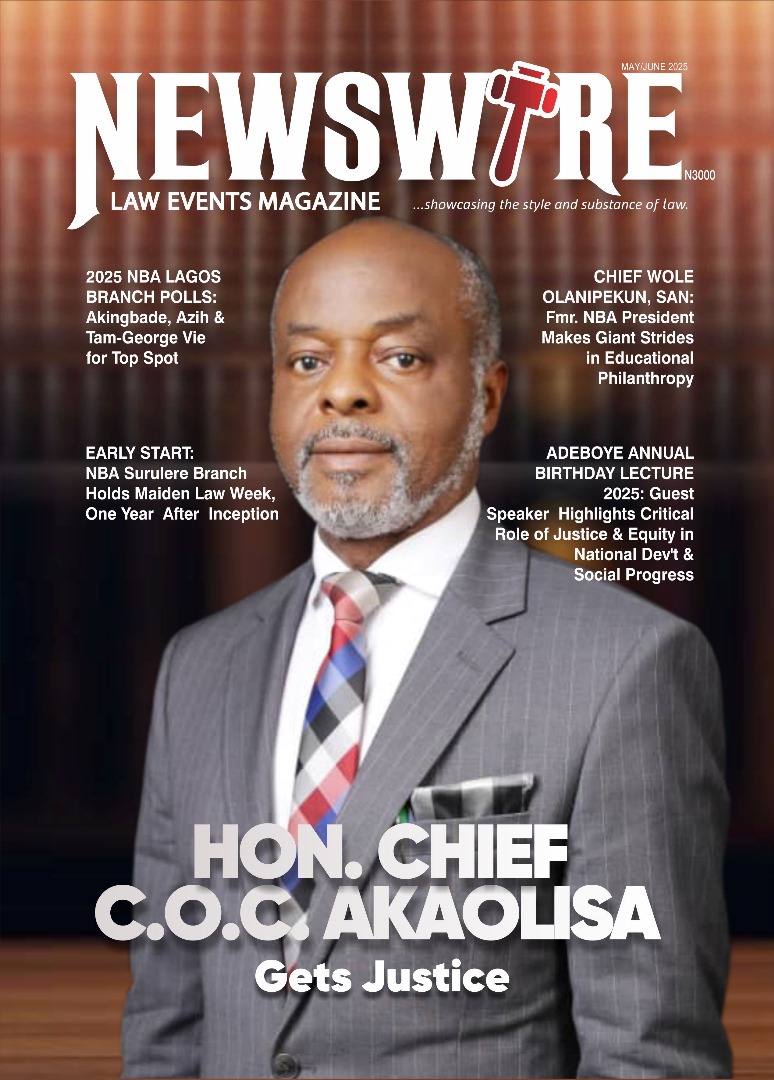Globalization can be defined as the process by which businesses, economies, and cultures become increasingly inter-connected and inter-dependent across the globe. It entails the free flow of goods, services, ideas, and technologies beyond national borders, leading to a more integrated global economy and society.
While some stakeholders hail the positive impact of globalization on the ability of Nigerians to gain access to, and compete effectively in, the global marketplace, others describe the phenomenon as a new form of economic neo-colonialism and imperialism, as it allows for the encroachment of players from advanced economies into less-developed ones – to the detriment of the latter. The question of whether globalization is a boon or bane of legal services by Nigerian professionals was explored in one of the breakout sessions at the 64th Annual Conference of the Nigerian Bar Association (NBA) in Lagos.

NEWSWIRE Law Events Magazine’s correspondent at the Tafawa Balewa Square venue of the Confab reports that the session, which was moderated by Sola Soyele, lawyer and law correspondent with Channels Television, comprised of Dr. Stanley Mba ; Mark Mordi, SAN (a seasoned legal practitioner with a track record in litigation, arbitration, and deployment of ADR mechanisms); Richard Atkinson (current Vice-President and in-coming President of the Law Society of England & Wales); Toyosi Alabi (a Partner with the law firm of Olaniwun Ajayi LP, with over two decades’ experience in trademarks and intellectual property litigation); and Prof. Zacchaeus Adangor, a former Attorney-General and Commissioner for Justice in Rivers State.
In his opening salvo, Dr. Mba listed the key aspects of globalization to include:
– International trade;
– Foreign investment;
– Migration;
– Technological advancements (such as improved communication and transportation technologies that facilitate global connections); and
– Cultural exchange.

Mba also made it clear that globalization could have both positive and negative impacts. The positive impacts, he said, included economic growth and job creation;increased access to goods and services; cultural diversity and exchange; and global collaboration and cooperation. Conversely, he also said, the negative impacts could be: income inequality and job displacement; environmental degradation and resource depletion; cultural homogenization and loss of local traditions, as well as increased risk of economic instability and crises.
Mba described globalization as a complex and multifaceted phenomenon that has shaped the modern world and will continue to evolve.
Speaking specifically about the globalization of legal services, Toyosi Alabi called attention to the increasing internationalization and cross-border provision of legal services, which has been enabled by technological advancements, trade liberalization, and the growing demand for legal expertise in a globalized economy. The key aspects of this phenomenon, she said, include:
– Cross-border practices, where lawyers provide services in multiple jurisdictions.
– Outsourcing, where legal work is parsed out to other countries;
– The rise of international legal firms;
– The emergence of online legal services, especially with digital platforms offering legal advice and services; and
– The role of global law firms in negotiating and facilitating international trade agreements.

Speaking virtually at the occasion, Prof. Adangor sought to put a dampener on Dr. Mba’s upbeat assessment of the globalization of legal services by pointing out its potential to erase the gains made over the decades by Nigerian law firms. Local law firms, he stressed, simply did not have the tools or infrastructure to compete successfully with Western law firms – and therefore whatever benefits are to be derived from globalization would be grossly lop-sided.
Like Dr. Mba, however, Alabi characterized the impact of the globalization of legal services as a double-edged sword, comprising of such positives as increased competition and innovation; improved access to legal services; and increased opportunities for legal professionals to work globally; but also harbouring challenges for local legal markets and regulatory authorities; ethical considerations, as well as potential conflicts of interest.

To make the most of the increasing internationalization of legal services, Alabi was of the view that Nigerian law firms and individual lawyers must navigate the following challenges with dexterity: instituting appropriate regulatory frameworks and licensing requirements; overcoming cultural and language barriers;
ensuring quality and standards; addressing ethical concerns; and balancing the demands of globalization with local legal traditions and needs.
Richard Atkinson, who spoke next, enumerated the opportunities awaiting Nigerian lawyers and law firms desirous of practicing in the United Kingdom. He maintained that while the British legal landscape presented a level-playing field for all comers, there were limitations and restrictions as to WHAT aspect of law a practitioner could engage (be it British law, or international law, or even the law of his country of origin).
In his contribution, Mordi, the Senior Advocate, stressed the need for Nigerian lawyers to skill up, build capacity and retool in order to be competitive in the global marketplace of cross-border legal services. Globalization, he said, has come to stay, and anyone who fails to tap into its numerous benefits (while mitigating its challenges) runs the risk of being left behind and ultimately becoming irrelevant.
-Advertisement-
Grab our latest Magazine, "Hon. Chief C.O.C Akaolisa gets justice". Get your order fast and stress free.
For more details about Newswire Law&Events Magazine, kindly reach out to us on 08039218044, 09070309355. Email: newswiremagazine@yahoo.co.uk. You will be glad you did






